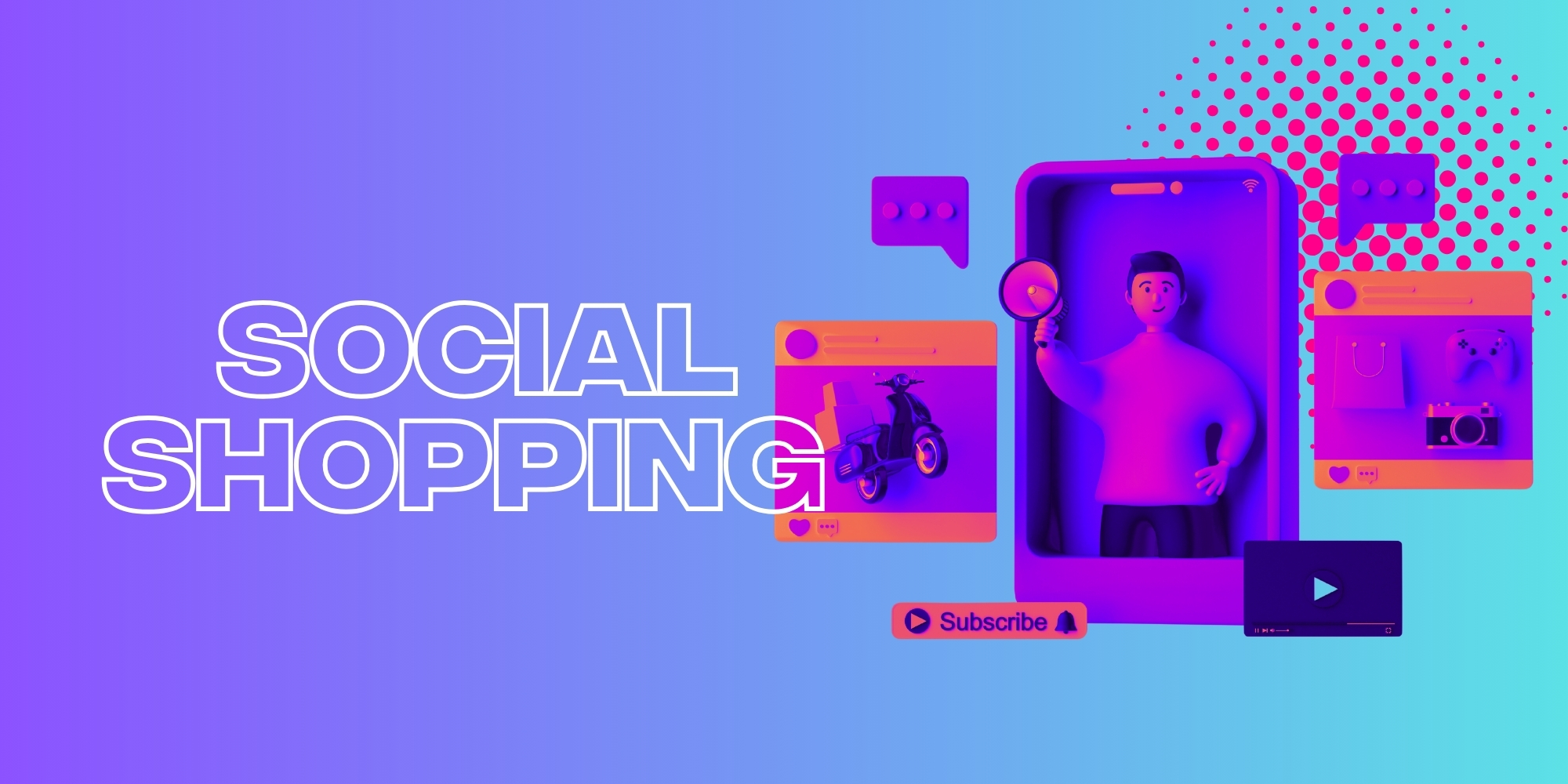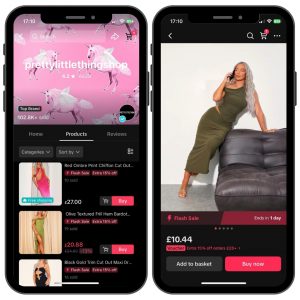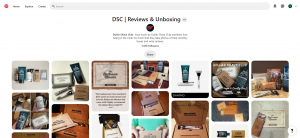Shopping But Make It Social: How Small Businesses Are Dominating Social Commerce
Jun 20, 2024
Social Commerce

The rise of social media has lent itself to numerous shifts in consumer behaviour within recent years. We’ve already seen the ecommerce boom during the 2010s, thanks to emerging technologies, but consumer habits have become even more granular since then.
Turning to in-app purchase experiences to feed their on-demand and seamless customer experience expectations, consumers are giving social shopping a whole new meaning.
Today, social commerce makes up 10% of all ecommerce sales, with this number expected to rise to 17% in the next three years. It really was only a matter of time before brands caught up to sell to their customers where they live – online.
But what brands are dominating social commerce right now?
Social commerce for small businesses is booming and this is largely due to its accessibility. Not just reserved for the most established brands, social commerce opens up new opportunities for small businesses looking to make it big.
Let’s take a look at the most successful stories to come from social commerce for small businesses as well as the driving forces behind this new phenomenon.
WHAT IS SOCIAL COMMERCE?
Social commerce pertains to the integration of shoppable experiences through social media, rather than the traditional selling model.

It leans on strong brand building, emphasising community, cross-channel marketing, and coherence as vital pillars for success. Due to the power authenticity has on these pillars, social platforms are becoming bigger drivers of a brand’s overall revenue.
Not to be mistaken for ecommerce, social commerce leverages specific tools and features on various social media platforms to generate sales and increase overall revenue. Tools and features such as live shopping videos, in-app purchasing capabilities, and shoppable ads all drive successful social commerce efforts. A strong digital omnipresence is key for encouraging emotional connections with consumers through these tools and features.
THE ROLE SOCIAL MEDIA PLATFORMS PLAY FOR SMALL BUSINESSES TODAY
As previously mentioned, social commerce for small businesses is particularly successful due to its accessibility. Social media platforms in general are free to join and use, making them not only a cost-effective marketing channel, but also a fool proof way to connect with relevant audiences and target customers.
The average user is no longer looking to Google for product discovery and general brand searches. Driven by younger generations, the preferred search engine is shifting away from the traditional and more towards social sites, such as TikTok and Instagram, with 53.2% of users between 18 and 24-years-old using them as a means to conduct brand discovery and extract new information.
So what does this mean for small businesses?
Essentially, extremely high reach and exposure potential.
Social media hasn’t only shifted the way short-form content is perceived by audiences, but also presented by brands. Today the rise in popularity of short-form videos has allowed more brands freedom when it comes to storytelling and an overall better showcase of their identity. What’s more, short-form video content lends itself perfectly to education, comedy, aesthetics, and connection, making it a perfect fit for almost any and all marketers out there looking to leverage social commerce for small businesses.
Furthermore, 50 million people around the world now consider themselves to be an online creator, which provides brands with ample opportunities to collaborate with those directly aligned with their values, mission, and target consumer. User-generated content is also on the rise thanks to the popularity of social media, creating a boom in the creator economy by allowing them to monetise their content and promote brands in a more streamlined way.
SMALL BUSINESSES DOMINATING SOCIAL COMMERCE
Made By Mitchell
If you’re ever-so-slightly interested in beauty and TikTok, you would’ve had a difficult time steering clear of Made By Mitchell’s content on your fyp. Joining TikTok Shop in 2022, this beauty behemoth, has reached unparalleled heights, emphasising the potential of social commerce for small businesses.
From packing just 20 orders per month, on average, to generating over £2 million in one week, the brand’s progression over to TikTok has been nothing short of outstanding; leveraging TikTok Lives, TikTok Shop, and regular community engagement to drive this success.
@madebymitchell SO CLOSEEEEE 🥲🥲🥲 #madebymitchell #blursh #fyp #viral #highlight #glow #summer #makeuphacks #makeup #tiktokmademebuyit
Anthropologie
Pinterest users aren’t typically known for searching for specific brands, more so styles and products. However, in 2020, search results for the term ‘Anthropologie home décor inspiration’ rose 1057% year-over-year, while ‘Anthropologie mirror’ jumped 375%.
To capitalise on this new consumer behaviour, Anthropologie met consumers directly on Pinterest by releasing a digital-only catalogue, the Anthtroliving Catalogue. This allowed users to view and interact with the brand’s spring home décor collection, enabling them to Pin favourite items, and click through to buy.
Here, Pinterest’s focus on curation helps to maintain interest and drives purchases over a longer time period, as well as in the moment.
Dollar Shave Club
As a small business selling razors and other shaving products, Dollar Shave Club has found the key to its target audience’s heart through a specific tone of voice, even after its Unilever acquisition; proving that social commerce for small businesses pertains to creativity and freedom.
Dollar Shave Club uses social proof in an original way by taking advantage of great reviews and testimonials from its customers. Taking it one step further, the business created a Pinterest board that featured genuine customer interactions and unboxing experiences. This move to Pinterest emphasises the importance of meeting your target audience where they live and creating a brand identity there.
The result? A devoted following, genuine brand, and a billion-dollar valuation. Not bad!

2024 TRENDS IN SOCIAL COMMERCE
Social Search Optimisation (SSO)
Similar to Search Engine Optimisation (SEO), you should tweak your content so that it’s more easily discoverable. With Gen Z using social media as their primary search engine, optimising content is now crucial for those looking for success when it comes to social commerce for small businesses.
The creator economy will fuel social commerce for small businesses
As content creators continue to partner with brands through affiliate programs and influencing, small businesses should seek out opportunities to enter the creator economy. Meta and YouTube are already developing revenue-sharing programs and TikTok has created a split ad revenue with approved creators through its TikTok Pulse program. These developments only mean that creators will almost certainly be inevitable in social commerce for small businesses as we continue in 2024.
AI will help brands learn more about shoppers
AI can help ecommerce entrepreneurs collect granular data on their customers’ shopping habits, helping to automate the crunching numbers part of a brand’s social commerce process. AI marketing will therefore become more prevalent and help personalise shopping experiences; a current consumer want in 2024.
Video ads will be used more often
The brands that understand how to use video to engage and convert customers are those who will lead the way in social commerce for small businesses. Instagram Reels, YouTube Shorts, and TikToks will be invaluable tools to wield as they adhere to the current consumer demand for a wealth of information in such a short amount of time about a product they’re interested in.
Zero-party data and privacy are at the forefront of consumers’ minds
Google is planning to end support of third-party cookies in 2024, leading brands to consider adding a zero-party data policy. This means they’ll need to identify and implement appropriate security and privacy protocols to protect customer data going forward.
Our influencer marketing agency and social agency are located worldwide, with our agency network based in the USA, UK, UAE and China.
If you want to find industry insights, visit our influencer marketing and social media blogs.
@sociallypowerful
Social And Influencer Marketing News + Insights
Get in touch
We'll show you how to start powerful conversation, drive social engagement, build your brand, hit sales targets or meet other goals you have, wherever you are in the world.
Work with us





